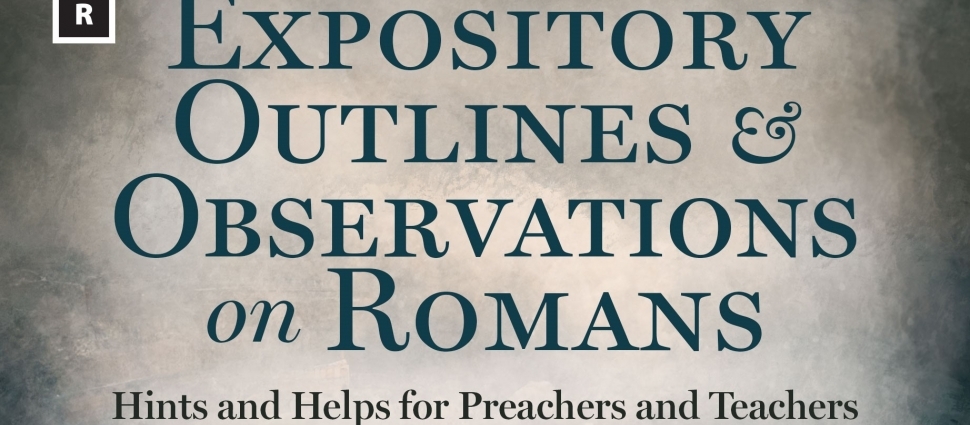Rob Ventura's Commentary on Romans, pt. 3

Editor's Note: Rob Ventura has provided us with a chapter from his forthcoming Mentor Commentary on the Book of Romans. We are thankful for the opportunity to share it with you. Our plan is to run segments of chapter 12 throughout the coming months. Enjoy!
Text: Rom. 12:9-21
General theme: Authentic Christianity
Homiletical outline of the verses:
A. Paul’s practical directives 9 Let love be without hypocrisy. Abhor what is evil. Cling to what is good. 10 Be kindly affectionate to one another with brotherly love, in honor giving preference to one another; 11 not lagging in diligence, fervent in spirit, serving the Lord; 12 rejoicing in hope, patient in tribulation, continuing steadfastly in prayer; 13 distributing to the needs of the saints, given to hospitality. 14 Bless those who persecute you; bless and do not curse. 15 Rejoice with those who rejoice, and weep with those who weep. 16 Be of the same mind toward one another. Do not set your mind on high things, but associate with the humble. Do not be wise in your own opinion. 17 Repay no one evil for evil. Have regard for good things in the sight of all men. 18 If it is possible, as much as depends on you, live peaceably with all men. 19 Beloved, do not avenge yourselves, but rather give place to wrath; for it is written, “Vengeance is Mine, I will repay,” says the Lord. 20 Therefore
“If your enemy is hungry, feed him;
If he is thirsty, give him a drink;
For in so doing you will heap coals of fire on his head.”21 Do not be overcome by evil, but overcome evil with good.
Summary of section: In these verses, Paul shows what true gospel transformation looks like in the lives of God’s people.[1] Far from leaving us wondering about this matter, he fleshes out for us in concrete ways how we, who have been redeemed by the blood of Christ should live toward believers within the household of faith (vv. 9-13), and then also how we should live toward unbelievers outside the household of faith (vv. 14-21). This topic is crucial for us to comprehend if we would honor Christ and the gospel in the world. Thus, this last section in this chapter does not consist of some random list of disconnected directives as some might think. Rather, it shows us very practically and clearly what authentic Christianity looks like in action. These verses show us in a series of “short, sharp, tweet-length statements”[2] what genuine Christianity is all about ethically speaking. As Paul begins his topic, it is noteworthy that he begins with the subject of love. Love is his starting point, as it should be for us as well. Love is that which is “the cement of the saints, and the bond of perfectness, without which all the gifts that men have, the profession they make, and works they do are of no avail, and they themselves nothing.”[3] As Vaughan and Corley note,
After considering the importance of humility and spiritual gifts, Paul is now ready to show us “a more excellent way” (1 Cor. 12:31). The sequence of ideas is exactly similar to that of 1 Cor. 12, 13, and obviously suggested by it. In the section that follows, love is the ruling thought, but Paul does not entangle it in the sloppy sentimentalism that haunts the word in modern religious talk. It is first of all love “without hypocrisy” (v. 9a), that is, “sincere,” “genuine.” In the ministry of the church, the Christian’s love must be the real thing, not counterfeit. . . . . We can best define the all-embracing character of unfeigned love by briefly commenting on its active features.[4]
[1] It may be that Paul was specifically led by the Holy Spirit to address these various topics with the church at Rome because they were falling short of these matters in their midst. Moo discusses this possibility, along with others on pages 771-774 in his commentary.
[2] Bird, p. 430.
[3] Online commentary: www.biblestudytools.com/gills-exposition-of-the-bible/romans-5-11.html.
[4] Curtis Vaughan and Bruce Corley, Bible Study Commentary Romans p. 141.





